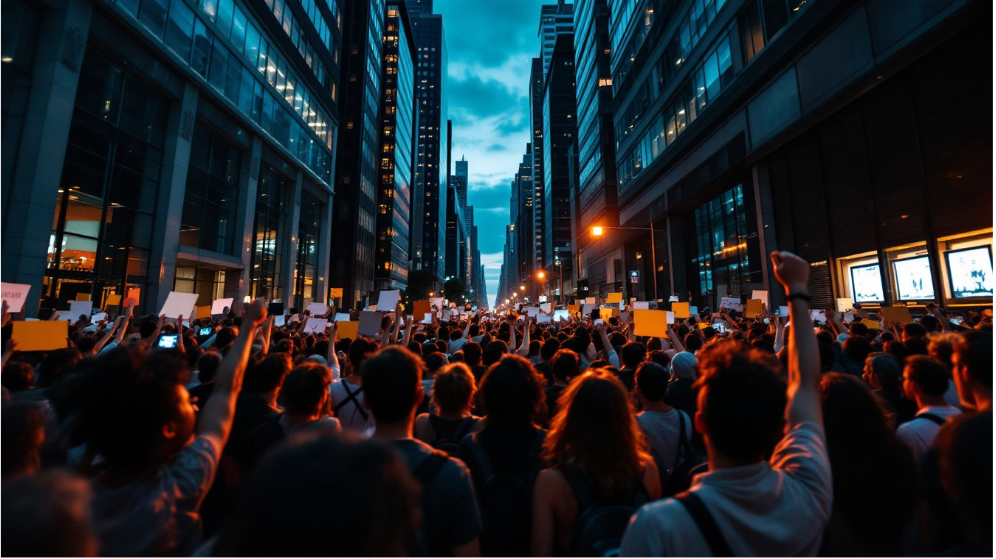Tensions have flared in Germany as widespread protests erupted across the country over the conservative CDU/CSU alliance’s cooperation with the far-right Alternative for Germany (AfD). Demonstrations have intensified following two controversial parliamentary votes on immigration reform, leading to sharp criticism of CDU leader Friedrich Merz, who pushed for measures that gained backing from the AfD.
The protests, which saw more than 160,000 participants in Berlin alone, focused on the perceived normalization of far-right influence in German politics. The rallies targeted Merz’s decision to advance anti-immigration bills that received crucial support from the AfD, a party long considered a “suspected” far-right extremist organization. Merz’s actions have broken with a longstanding post-WWII political consensus that excluded extremist parties from power, a principle known as the “firewall.”
Rising Concerns Over Far-Right Influence
The contentious votes included a non-binding motion and a narrowly defeated bill, both aimed at restricting immigration. While the measures garnered support from the business-friendly Free Democrats (FDP) and the populist Sahra Wagenknecht Alliance (BSW), it was the AfD’s involvement that sparked protests and criticism. Political figures from Germany’s center-left Social Democrats (SPD), including Chancellor Olaf Scholz and Defense Minister Boris Pistorius, condemned Merz’s decision, arguing that it undermined democracy and endangered the post-war political order.
Protesters voiced their anger not just at Merz but also at the growing influence of the AfD. While some protests targeted Merz directly, others, particularly in cities like Neu-Isenburg and Göttingen, focused on resisting the far-right party’s rise and its impact on German society. In Göttingen, counter-demonstrations organized by the “Alliance against the Right” clashed with pro-AfD groups, with police having to intervene to disperse the crowds.
Merkel’s Rare Criticism of Merz
The protests were also marked by a rare public rebuke from former Chancellor Angela Merkel, who condemned Merz’s collaboration with the AfD. Merkel, known for her diplomatic approach, took to social media to criticize the decision, urging the CDU to uphold the values that have defined Germany since the Nazi era. In Cologne, protesters echoed this sentiment, with signs calling on Merz to “listen to Mutti,” referring to Merkel’s nickname as the nation’s “mother.”
Despite the backlash, Merz received support from within his party, notably from Markus Söder, leader of the CSU, the Bavarian sister party to the CDU. Söder defended the decision, describing it as a necessary step to address Germany’s asylum policy.
Impact on the Upcoming Election
As Germany’s federal election approaches, the tension surrounding the CDU’s strategy could play a significant role in shaping the political landscape. The protests reflect a deepening divide over immigration, national identity, and the influence of far-right extremism in Germany. Whether Merz’s controversial approach will alienate voters or gain him support remains to be seen, but the rising protests signal growing concern over the future direction of the country’s political climate.



